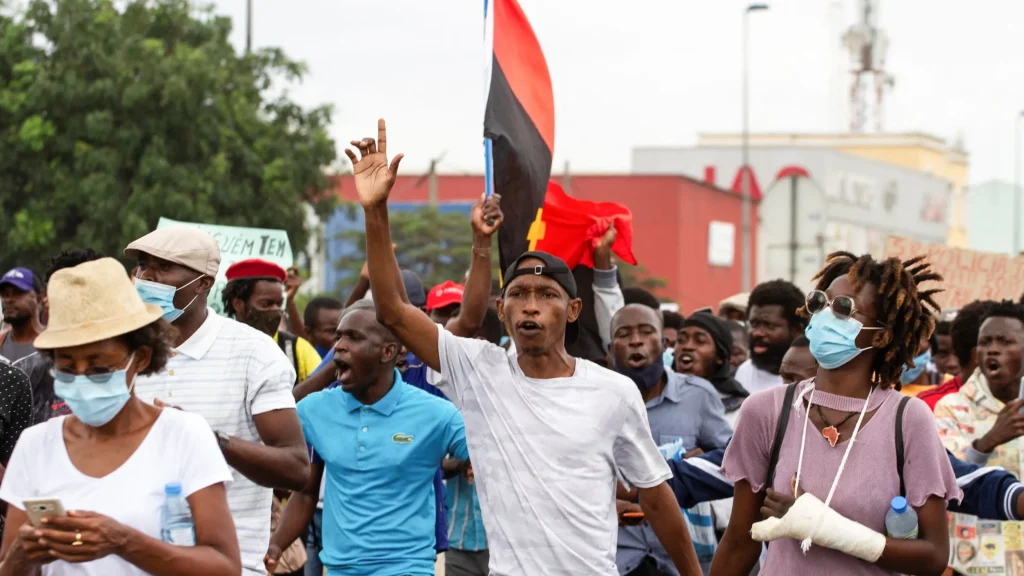Corruption and the Cost of Silence
By Divine Adongo | Voices of Africa

How Everyday Compromise Weakens African Democracy!
It starts small. A driver hands a few cedis to a policeman to avoid a fine. A parent pays a “connection fee” to secure their child’s admission to a good school. A nurse demands a bribe before attending to a sick patient. A government official inflates a procurement contract by 40% to “take care of the boys.” At first glance, these may seem like individual acts of survival. But multiplied across millions of lives and decades, these small compromises become the quiet killers of democracy.
In Africa, corruption is not just a scandal — it is a system. It is the silent force behind broken hospitals, collapsing roads, and unpaid teachers. It is why elections are rigged, why youth lose faith in the state, and why public trust is as rare as clean water in some rural communities. And yet, for all its devastating effects, corruption thrives not only because of the corrupt but also because of the silence of those who should speak.
We often think of corruption as something distant — something that happens in “high places” by “big men in suits.” But corruption is also deeply personal. It is present when job positions are sold, when medical supplies are diverted to private clinics, and when justice is delayed for those who cannot pay. It is embedded in systems where access to opportunity depends not on merit, but on networks. In such systems, the poor are penalized, the honest are discouraged, and the nation bleeds slowly.
The cost is staggering. According to Monique Nsanzabaganwa, the AU Deputy Chair, “Africa loses on average $60 billion in illicit financial flows and more than $140 billion to corruption every year,” more than the continent receives in foreign aid. But beyond the money, the cost of corruption is measured in lives. It is the child who dies because the hospital has no medicine. It is the farmer whose land is grabbed by elites. It is the graduate who migrates because merit has no place in public service. Corruption kills hope, and without hope, democracy cannot breathe.
Yet in many African societies, corruption is normalized — explained away with statements like “this is how the system works” or “everyone is doing it.” Speaking out is often discouraged, if not dangerous. Whistleblowers face threats, and anti-corruption activists are branded as enemies of development. Citizens are told to be patient, while political leaders steal in real time. In such an environment, silence becomes complicity, and complicity becomes culture.
But corruption is not inevitable. It is a human choice — and therefore, it can be unlearned, resisted, and replaced. In countries like Botswana, Rwanda, and Cabo Verde, we see progress where institutions are strong, leaders are held accountable, and systems are transparent. In Kenya, Ghana, Nigeria, and South Africa, citizens are increasingly using technology, social media, investigative journalism, and civic action to expose corruption. Youth-led platforms are naming and shaming officials, documenting public sector rot, and mobilizing for reform. These are signs of resistance, and they must be protected and amplified.
The fight against corruption is not only about punishing the guilty. It is about building a culture of accountability — from the highest offices to the everyday citizen. It is about ensuring that public resources serve the people, not politicians. It is about raising a generation that values integrity more than influence. And it is about creating systems where honesty is rewarded, not punished.
Africa cannot afford to normalize theft in the name of tradition or tribalism. We cannot build good governance on the back of bad behavior. Pan-Africanism means more than unity — it means a shared commitment to justice, to fairness, and to responsible leadership. It means recognizing that every act of corruption steals from our collective future — and that silence, in the face of theft, is betrayal.
Let this generation be the one that breaks the silence. Let us speak out in our schools, in our churches, in our markets, in our WhatsApp groups. Let us demand accountability not just during elections, but every day. Let us reward leaders who serve, and remove those who steal.
The cost of corruption is too high. And the longer we stay silent, the more we all pay.



